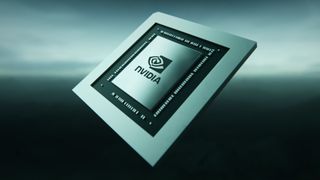Oh no, the Large Hadron Collider is getting hungry for graphics cards
Just what the GPU market needed: a really tenacious repeat buyer

The Large Hadron Collider, which you may know for its work colliding hadrons over at the CERN laboratory, has found a reinvigorated taste for graphics cards.
As CERN explained in a recent announcement, the researchers at the big-ol' LHC have experimented with GPU power before, with key advancements in online reconstruction arriving as recently as last October, and they're now looking to more directly integrate graphics cards to support their data processing.
Using GPUs in supporting servers dramatically improves data flow in experiments like this. Apparently. For example, CERN estimates that without GPUs, it would need "about eight times as many servers" to handle the sheer quantity of data pouring in from the LHC's upgraded ALICE detector, which tops out around 3.5 terabytes per second.
In 2022, the LHCb – which studies the "beauty" or "b" quark, and no we're not making any of this up – is projected to generate over four terabytes of data per second, and "instead of offloading work, it will analyze the full 30 million particle-bunch crossings per second on GPUs."
In a similar vein, ATLAS – that's the hadron-colliding ATLAS experiment under CERN, not the demon-romancing Atlus under Sega – are actively "engaged in a variety of R&D projects towards the use of GPUs both in the online trigger system and more broadly in the experiment." According to CERN IT department head Enrica Porcari, GPUs have already been applied to "a range of applications" and are also being tested with machine learning.
What does all of this mean? Probably something really cool, but the only thing we could really parse was that CERN has joined us in the race to find some damn graphics cards. Fortunately, rather than struggling to find RTX 3090 stock, photos of newly constructed LHC servers show that CERN is using the more widely available, last-gen Nvidia T4 GPU for the time being. Here's hoping the LHC is satisfied with just that. The last thing the GPU market needs is a 27-kilometer particle collider putting in a big order.
Intel says it's working to address the ongoing GPU crisis.
Sign up to the GamesRadar+ Newsletter
Weekly digests, tales from the communities you love, and more
Austin freelanced for the likes of PC Gamer, Eurogamer, IGN, Sports Illustrated, and more while finishing his journalism degree, and he's been with GamesRadar+ since 2019. They've yet to realize that his position as a senior writer is just a cover up for his career-spanning Destiny column, and he's kept the ruse going with a focus on news and the occasional feature, all while playing as many roguelikes as possible.
Most Popular








